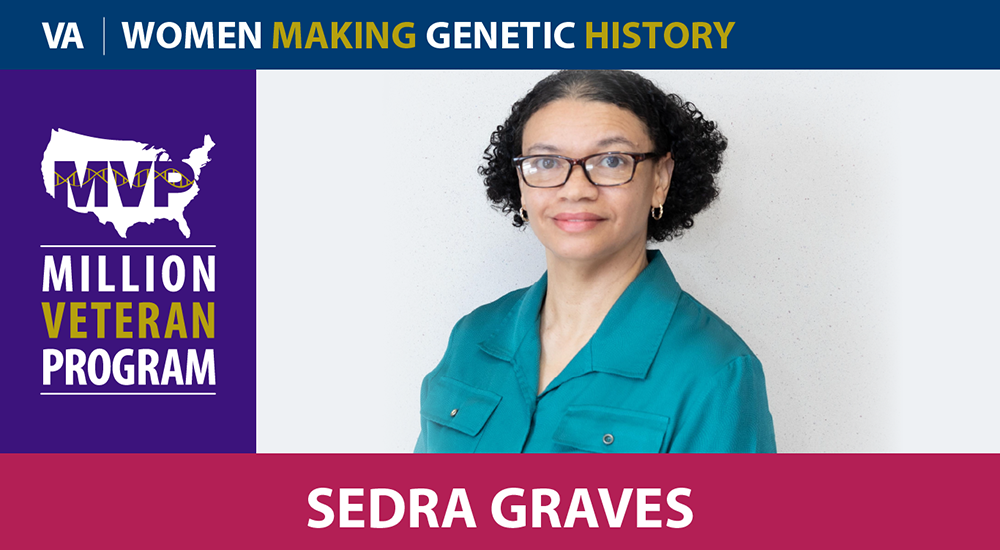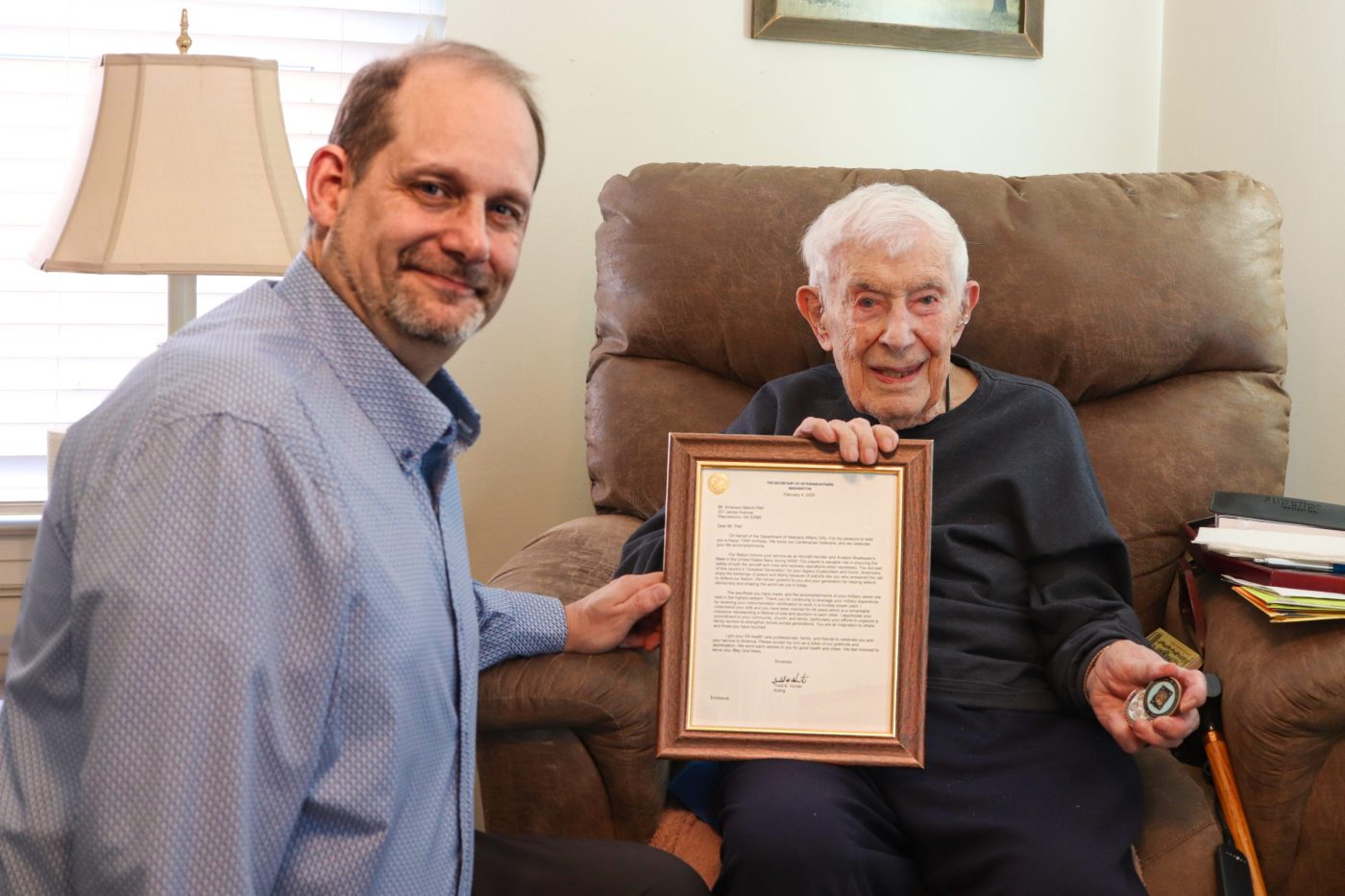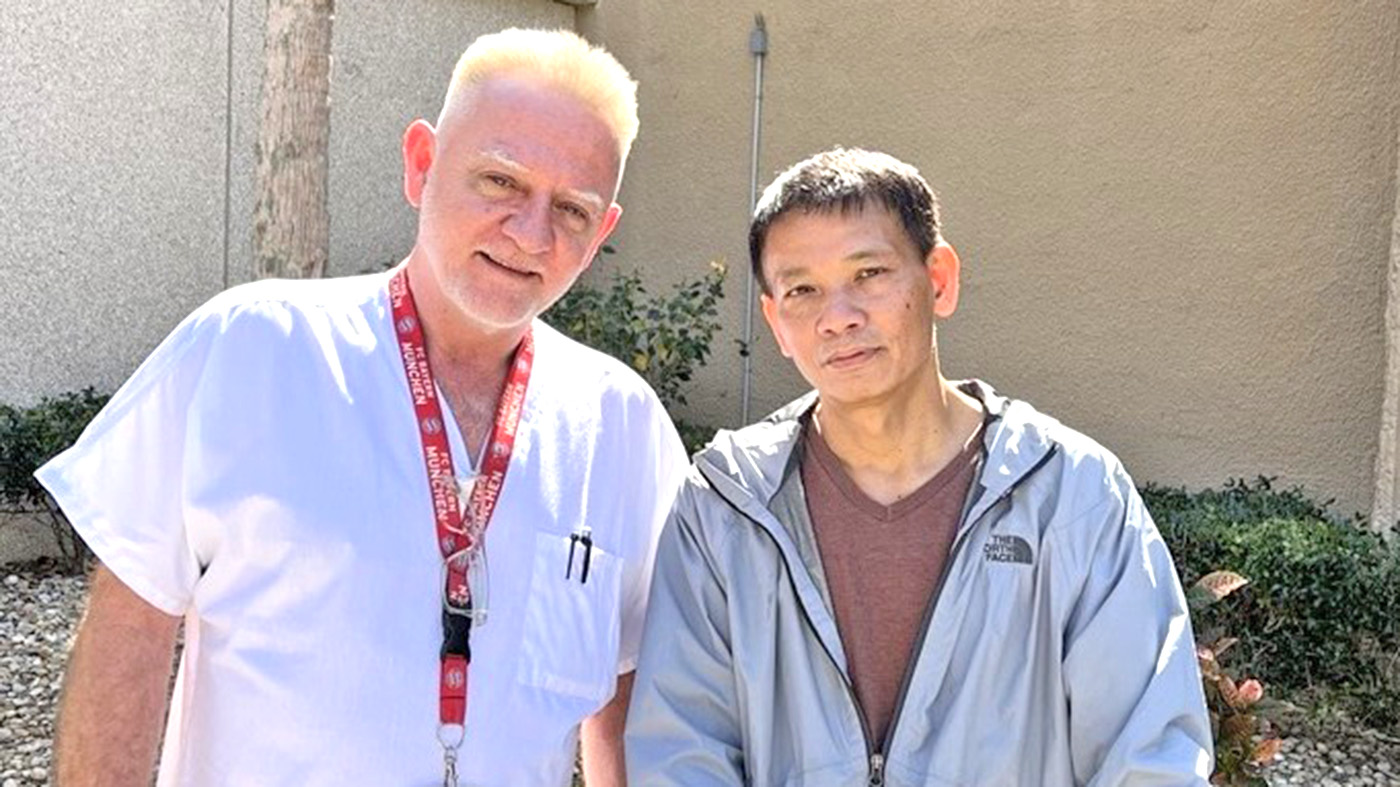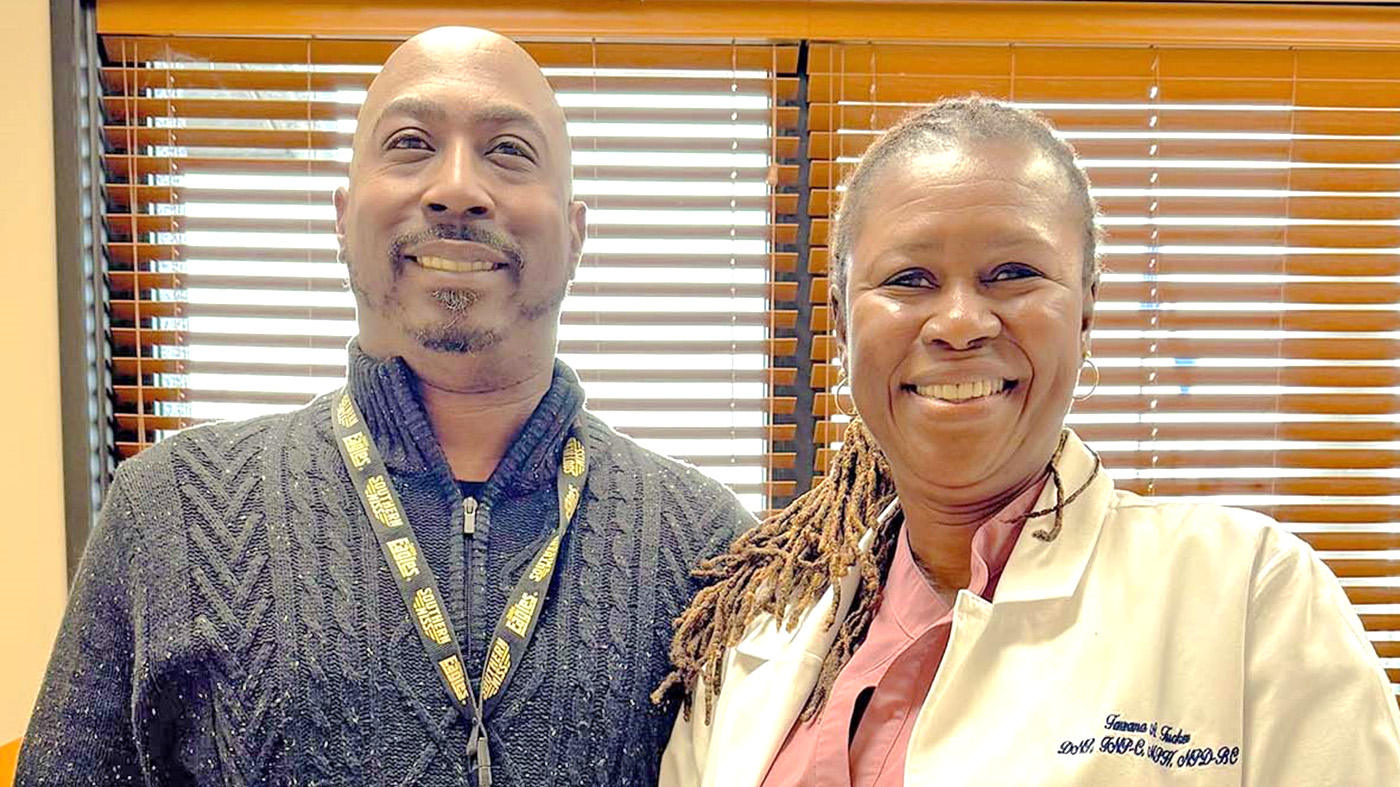Sedra Graves is from a big family in a small Louisiana town nestled between green farmland and the marshy bayou. She dreamed of one day leaving to get an education and travel the world. As for so many others, the Army was her ticket to both.
Before she knew it, Graves found herself in the Persian Gulf participating in Operation Desert Storm. Later, she was walking across the graduation stage to accept a bachelor’s degree in Health Care Management.
After 20 years of service on active-duty, she retired as an Army master sergeant. Graves settled at her last station on the beautiful island of Oahu, Hawaii. As a result, the Army had given this soldier from the Louisiana bayou a world of opportunity. Now she wanted to give back.
Joining VA and the Million Veteran Program
In 2010, Graves eagerly accepted a position at the VA Pacific Islands Health Care System in Honolulu. “After retiring from the military, I wanted to continue helping Veterans like myself,” she said. “VA was the best place for me to do that.”
As an administrative officer in VA’s research department, Graves was excited to learn about the Million Veteran Program (MVP). After all, MVP is the world’s largest genetic research program of its kind.
Graves decided to join along with over 830,000 Veterans, agreeing to share her DNA along with information on her health, lifestyle and military exposures. The MVP makes this data available to approved researchers, while protecting the identities of Veterans, to study different diseases and illnesses.
“This program is discovering more every day about diseases and conditions that affect Veterans like cancer, cardiovascular disease, diabetes, hypertension, gene variation, Gulf War Illness, and kidney diseases, to name a few,” she added.
Someday, the goal is to offer Veterans the exact treatments, cures and preventive care they need without any guesswork. This is also known as ‘precision’ or ‘personalized medicine.’ Being a partner in MVP is one small way to leave a big legacy, she said.
A special focus for women Veterans
While there are nearly a million Veterans in MVP, over 75,000 are women like Graves. This is significant because women have historically been underrepresented in biological and medical research. MVP wants to change that.
“If more women Veterans consider joining, VA researchers would have a larger gene pool to study women’s health in greater detail. As a result, they can offer women the specialized care they need and deserve,” says Dr. Sumitra Muralidhar, MVP director.
To her fellow female Veterans, Graves says, “MVP is a great way of continuing your service after the military. You are helping advance science, as well as advancing the care, treatment and well-being of countless numbers of Veterans and the community.”
How to join MVP
To learn more, visit mvp.va.gov or call 866-441-6075.
Participation involves:
- Giving your informed consent.
- Providing a blood sample for genetic analysis.
- Allowing access to your health records to approved researchers on an ongoing basis.
- Filling out surveys to get a better picture of your health and lifestyle.
Sandra Glover is the chief communications officer for VISN 9.
Topics in this story
More Stories
When asked if he's a hero, 100-year-old WWII Navy Veteran Emerson Pell gave a short, modest response: “I was just a normal guy.”
A member of the Care Transition Clinic got to demonstrate his I CARE values for an Army Veteran.
When a Veteran explained a diabetic health issue to staff, they scheduled an immediate medical appointment.






